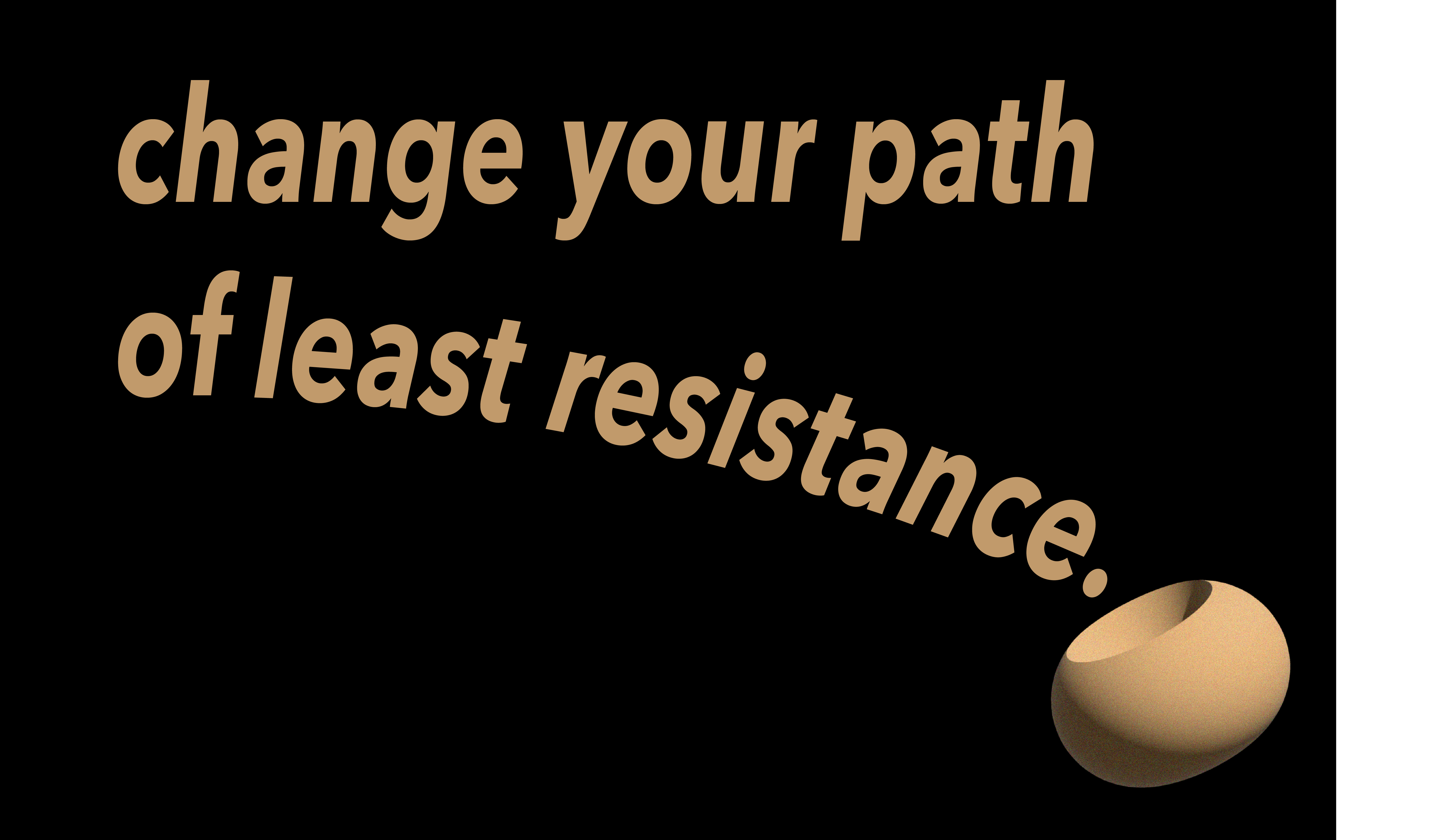as humans, we are biologically wired to do what is easiest. for example, it can be easy to take the elevator instead of the stairs, scroll on our phones instead of doing chores, buy meals instead of cooking, or even respond with “good” to “how are you?” instead of going into it. expending less effort allows us to conserve our emotional and physical energy, a significant evolutionary advantage—and it takes substantial willpower to go against this urge.
many physical systems similarly follow paths of least resistance—consider water trickling down a pile of rocks or light rays refracting off the surface of a pond. in fact, this seems to be a fundamental way of the universe—in some sense, all physical systems seek their state of lowest energy.
however, unlike water and light, we have the ability to change our path of least resistance. for example, we can take a book to bed instead of our phone, replacing the most accessible form of entertainment. alternatively, we can make a commitment to not purchase junk food at the grocery store, making it easier to just eat the healthy food in the fridge. even simply surrounding yourself with people who have similar goals to you makes it easier to follow your own.
it is difficult to avoid following the path of least resistance. but you can change the path.
